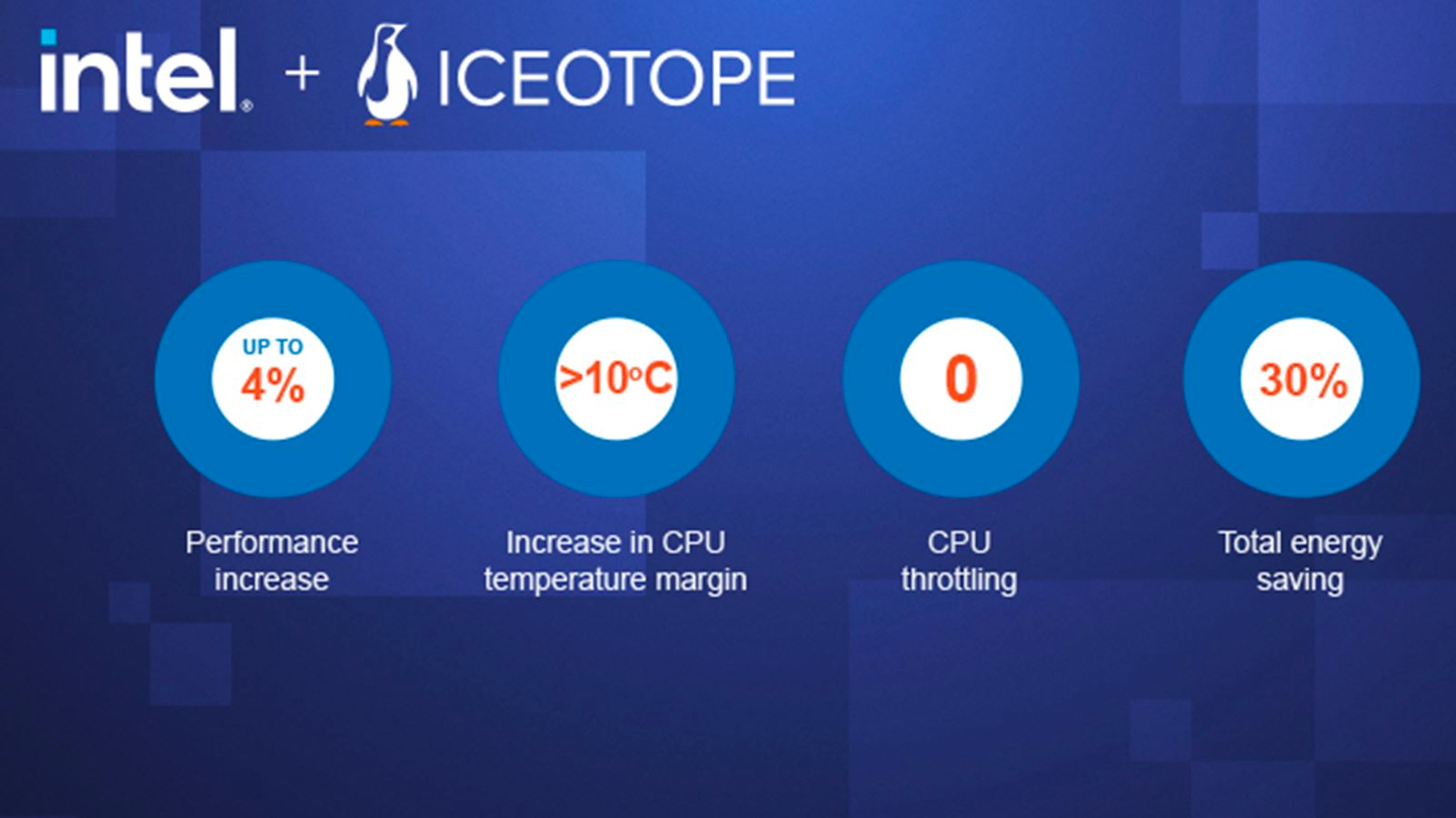
Categories
Now available is a new benchmarking white paper that shows the operational advantages of precision immersion cooling vs air cooled systems. Iceotope collaborated with Intel and HPE to demonstrate massive energy savings of up to 30%, a significant uptick in processing performance and reliable server operations at full throttle.
Artificial intelligence and high-performance computing applications are having a transformative impact on data centre design. As compute densities increase, so too do the energy demands of individual servers and racks. Legacy air-cooled data halls can no longer keep up with the demands of the technology.
Introduction to the white paper
Artificial intelligence and high-performance computing applications are having a transformative impact on industries from life science to healthcare to financial services. They are also transforming data center design as the processing requirements for these applications is creating a paradigm shift in the data center environment.
As compute densities increase, so too do the energy demands of individual servers and racks. Add to this growing pressure to lower carbon emissions, as well as the requirements of distributed edge locations, data center operators are at the center of a perfect storm. Legacy air-cooled data halls can no longer keep up with the demands of the technology.
To better understand the operational advantages of precision immersion cooling vs air cooled systems, Iceotope teamed up with Intel and Avnet Integrated to conduct benchmark testing with Hewlett Packard Enterprise’s (HPE’s) industry leading servers in the Ku:l Data Center solution. Iceotope have had an OEM agreement to offer liquid cooling with HPE ProLiant servers since 2021.
Download the white paper here.
